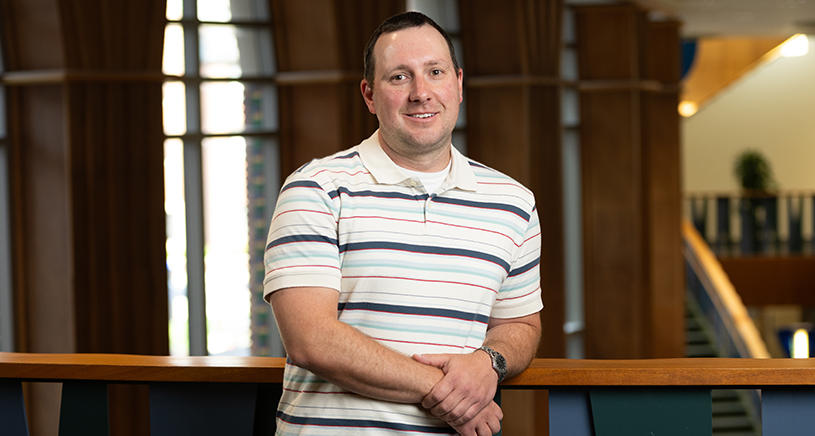Courses Taught by Matt Zawistowski
BIOSTAT499: Transforming Analytical Learning in the Era of Big Data
- Undergraduate level
- Residential
- Spring-Summer term(s) for residential students;
- 3 credit hour(s) for residential students;
- Instructor(s): Matt Zawistowski (Residential);
- Prerequisites: Admission to BDSI Program
- Description: The "Transforming Analytical Learning in the Era of Big Data" course is a a six week undergraduate summer program that exposes students to diverse techniques, skills and problems in the field of Big Data and Human Health. Students receive a broad and interdisciplinary introduction to statistical theory and concepts during morning lectures led by faculty from across campus. Afternoons are spent in small faculty-mentored research groups analyzing real big datasets to address focused research questions. The course also includes professional development designed to prepare students for the graduate school application process.
- Learning Objectives: At the conclusion of the course, students will have the skills required to pursue graduate studies in Big Data science.

BIOSTAT600: Introduction to Biostatistics
- Graduate level
- Residential
- Fall term(s) for residential students;
- 2 credit hour(s) for residential students;
- Instructor(s): Matt Zawistowski (Residential);
- Prerequisites: Biostatistics students only
- Description: This course is planned as a refresher course in mathematical underpinnings that are key to statistics, like calculus, probability and linear algebra followed by discussion of basic statistical methods and concepts for all entering Biostatistics masters (and some doctoral) students. Its purpose is to prepare students for subsequent biostatistical courses.
- Syllabus for BIOSTAT600

BIOSTAT834: Pedagogical Methods For Biostatistics Courses
- Graduate level
- Residential
- Winter term(s) for residential students;
- 2 credit hour(s) for residential students;
- Instructor(s): Matt Zawistowski (Residential);
- Prerequisites: None
- Advisory Prerequisites: Biostatistics PhD Candidacy or permission of instructor
- Description: Biostatistics faculty teach a wide range of courses over diverse student backgrounds, presenting distinct challenges and considerations. This course will develop ideas and skills for building biostatistics courses tailored for specific student groups and course levels. It will prepare PhD students for their first teaching assignment in a faculty position.
- Learning Objectives: 1. Understand how the audience of a specific course impacts course design, content and learning objectives. 2. Implement the concepts of the Guidelines for Assessment and Instruction in Statistics Education (GAISE) College Report into course planning. 3. Become familiar with technology resources to increase active learning techniques (e.g. Poll Everywhere) and improve course management (Canvas). 4. Develop teaching skills that transcend biostatistics: inclusive teaching practices, mentoring and conflict resolution.

PUBHLTH383: Data Driven Solutions In Public Health
- Undergraduate level
- Residential
- Winter term(s) for residential students;
- 4 credit hour(s) for residential students;
- Instructor(s): Matt Zawistowski (Residential);
- Prerequisites: PUBHLTH 200 and PUBHLTH 381 and one of: STATS 206, STATS 250, STATS 280, STATS 412, IOE 265, or ECON 451.
- Description: This course introduces the importance of data in public health, including collection, analysis, interpretations, and dissemination. It provides examples of data used to evaluate public health decisions, policy and resource allocation. It is an introduction to biostatistical and epidemiological methods, informatics, and big data including usage, management and challenges.
- Learning Objectives: 1)Identify key strategies and methods for obtaining current public health data 2)Explain the use of basic epidemiological methods in study design and implementation to generate new data and metrics to address public health issues 3)Illustrate how analyses and results are used to inform intervention development and influence appropriate public health policies. 4)Apply statistical methods in order to describe data, make inferences and test hypotheses regarding population parameters 5)Apply results from data analyses to explore, define, identify and prioritize public health challenges and solutions
- Syllabus for PUBHLTH383

